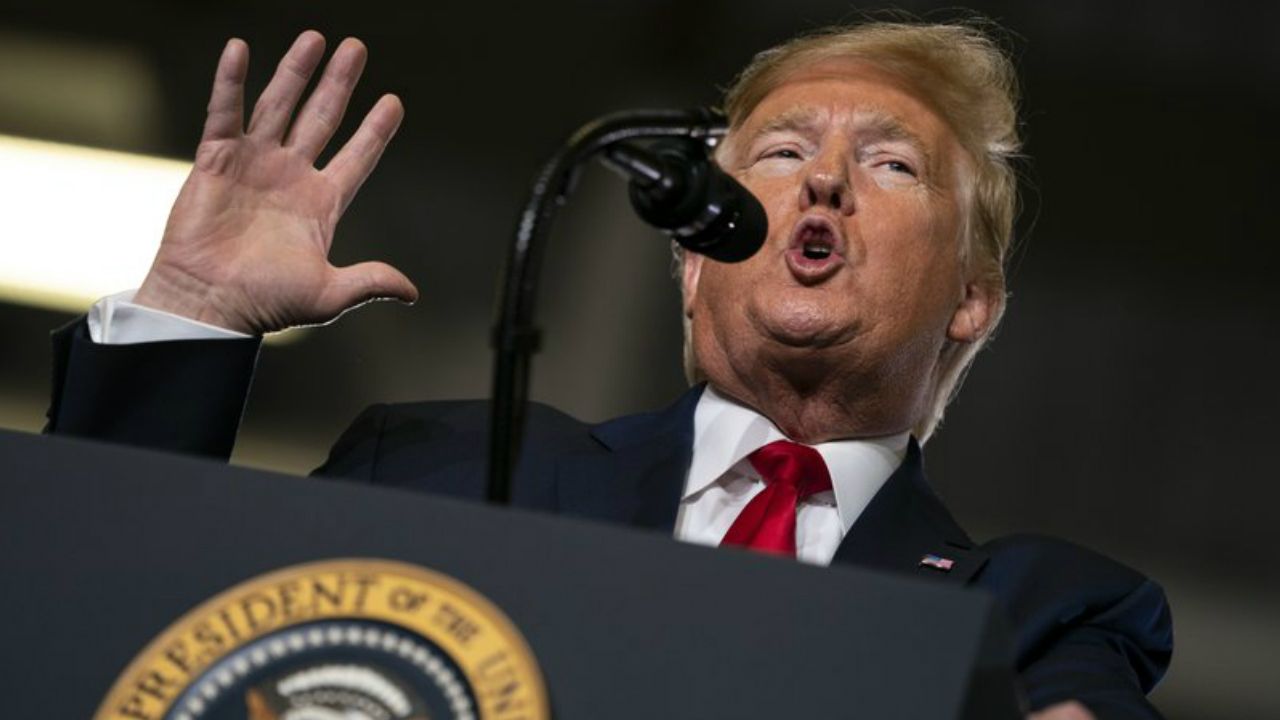WASHINGTON, D.C. — President Donald Trump was acquitted Wednesday in the U.S. Senate, bringing to a close only the third presidential trial in American history.
- LIVE UPDATES: Get up-to-the-minute updates from Spectrum News DC reporters ▼
- RELATED:
- Closing Arguments Presented in Trump Impeachment Trial
- Senate Votes No on Witnesses in Impeachment Trial
- Impeachment Defense Argues Trump's Actions Not Impeachable
- GOP, Dems Unsure if Bolton, Witnesses Will be Called in Impeachment Trial
- Trump's Team Faces Pressure Over Impeachment Trial Witnesses
- Understanding How The Impeachment Process Works
- Getting Answers: What are Impeachment Managers?
A majority of senators had expressed unease with Trump’s pressure campaign on Ukraine that resulted in the two articles of impeachment.
But the final tallies — 52-48 favoring acquittal of abuse of power, 53-47 of obstruction of Congress’ investigation — fell far short.
Two-thirds “guilty” votes would have been needed to reach the Constitution’s bar of high crimes and misdemeanors to convict and remove Trump from office.
The outcome Wednesday caps nearly five months of remarkable impeachment proceedings launched in Speaker Nancy Pelosi’s House, ending in Mitch McConnell’s Senate and reflective of the nation's unrelenting partisan divide three years into the Trump presidency.
The Wednesday afternoon vote was swift. With Chief Justice John Roberts presiding over the trial, senators sworn to do “impartial justice” stood at their desks for the roll call and stated their votes — “guilty” or “not guilty.”
On the first article of impeachment, Trump was charged with abuse of power. He was found not guilty. The second, obstruction of Congress, also produced a not guilty verdict.
Only one Republican, Mitt Romney of Utah, the party’s defeated 2012 presidential nominee, broke with the GOP.
Romney choked up as said drew on his faith and “oath before God” to announce he would vote guilty on the first charge, abuse of power. He would vote to acquit on the second.
Both Bill Clinton in 1999 and Andrew Johnson in 1868 drew cross-party support when they were left in office after an impeachment trial. President Richard Nixon resigned rather than face revolt from his own party.
Despite the history behind Wednesday's moment, there was little suspense about Trump being removed.
Republicans say the burden of proof was on the House managers and they failed in that matter. However, Republicans denied additional witnesses and documents Democrats say would have helped bolster the evidence, which they say is already overwhelming.
However, Democrats did not want former Vice President Joe Biden or his son, Hunter Biden, to be called as witnesses.
The entire impeachment came from a July 25, 2019, phone call between Trump and Ukrainian President Volodymyr Zelensky. In the phone conversation, Trump asked for a "favor," according to an account provided by the White House.
He allegedly wanted an investigation into both Democrats and Joe Biden and his son Hunter. Later it was revealed that the administration was also withholding $400 million in military aid from Ukraine.
Republicans argue the money was given to Ukraine without any investigation, and there was no quid pro quo, or favor for a favor.
Hunter Biden is accused of corruption while sitting on the board of a gas company based in Ukraine.
Because of this, the House approved the articles of impeachment on the charges: abused of power and obstruction of Congress.
A majority of senators have now expressed unease with Trump's alleged pressure campaign on Ukraine that resulted in the two articles of impeachment. However, there is nowhere near the two-thirds support necessary in Republican-held Senate for the Constitution’s bar of high crimes and misdemeanors to convict and remove the president from office.
The Associated Press contributed to this story.



